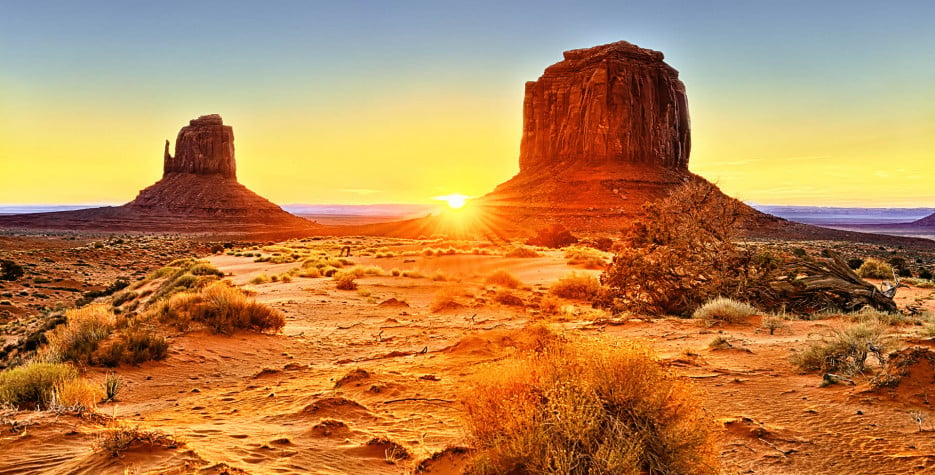When is Indigenous People's Day?
This is a state holiday observed on the Second Monday in October.
It is a holiday in Maine, Nebraska, New Mexico, and South Dakota. It is known as Native Americans Day in South Dakota.
Arizona, Montana and Virginia have proclaimed that they will observe Indigenous Peoples Day on the second Monday in October, though Columbus Day remains the official state holiday.
Note that Alaska, Iowa, Louisiana, Maine, Minnesota, Nevada, North Carolina, Oregon, South Dakota, Vermont and Wisconsin observe this day, but it is not a paid holiday.
Many cities and towns in various states will observe this day as Indigenous People's Day. For a full list of who observes what, please read our state by state guide to Columbus Day.
Presidential Recognition
On October 8th 2021, President Joe Biden became the first commander in chief to formally recognize Indigenous People’s Day by issuing a proclamation celebrating the upcoming holiday.
The proclamation says:
“On Indigenous Peoples’ Day, our Nation celebrates the invaluable contributions and resilience of Indigenous peoples, recognizes their inherent sovereignty, and commits to honoring the Federal Government’s trust and treaty obligations to Tribal Nations.”
The proclamation ends on a powerful note:
“On Indigenous Peoples’ Day, we honor America’s first inhabitants and the Tribal Nations that continue to thrive today.”
Will it become a Federal Holiday?
Despite some misunderstanding of the nature of a presidential proclamation by the media, Indigenous People's Day is not yet a federal holiday.
However, legislation for that is underway. The Indigenous Peoples’ Day Act would designate the second Monday of October as Indigenous Peoples’ Day nationwide.
The House version was introduced on September 30th 2021 as H.R. 5473, by Rep. Norma Torres (D-CA35). The Senate version was introduced the same day as S. 2919, by Sen. Martin Heinrich (D-NM).
History of Indigenous People's Day
As you may guess from the link above, this holiday has risen to prominence as a replacement for Columbus Day.
Over 500 years ago, Christopher Columbus found himself in the Americas, and while he thought he had found Asia, it wasn't until his third trip and the torture and enslavement of many indigenous people before he realized he discovered another continent entirely.
When colonists then began immigrating to the Americas, they brought diseases including smallpox and influenza that destroyed entire indigenous populations.
Despite this, the date of Columbus' arrival in the new world on October 12th 1492 was adopted by many countries across the Americas and the Caribbean as a public holiday.
Indigenous Peoples' Day was first proposed during a United Nations conference in 1977 when members of the community reported facing discrimination. It was instituted in Berkeley, California in 1992 and has continued to grow in popularity over the years.
In recent decades, the awareness that colonization by Spain and other European nations spelled disaster for the indigenous peoples had led to almost all of these holidays being replaced by a 'Day of the Races', which focuses on celebrating the heritage and contribution to the Americas of those who were here before Columbus.
That this approach has been taken up in the USA is not surprising, particularly in states which have a substantial indigenous community. South Dakota made its change in 1990. To date, the only other states to have switched from Columbus Day are Maine and New Mexico who both adopted Indigenous People's Day in 2019.
Some states have avoided having to change by quietly dropping Columbus Day from its list of holidays. Nowadays it is estimated that only 14% of employees have a day off on Columbus Day.
According to the United States Census Bureau, in 2010, some 5.2 million people in the United States identified as American Indian and Alaska Native, either alone or in combination with one or more other races.
And its growing population, the total U.S. population grew by 9.7% from 281.4 million in 2000 to 308.7 million in 2010. In comparison, the American Indian and Alaska Native population increased almost twice as fast as the total for the U.S.


